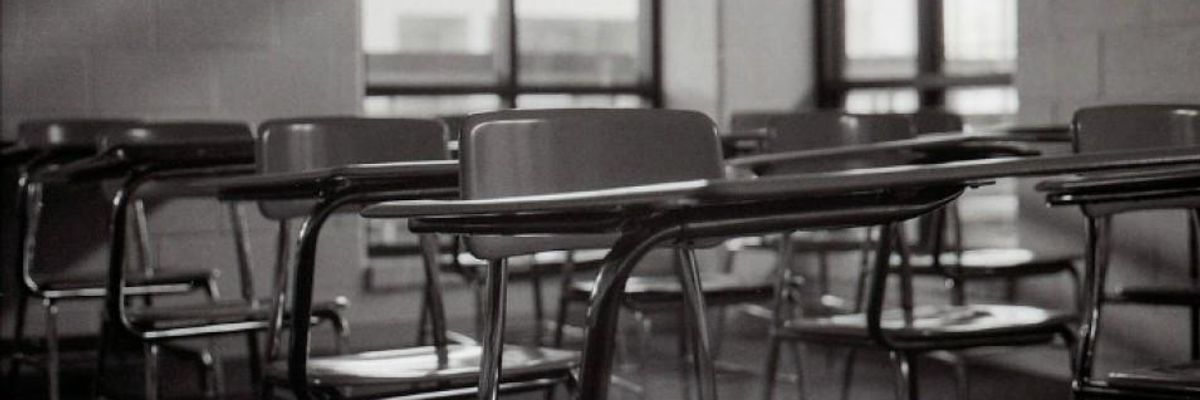As U.S. schoolchildren return to the classroom, teachers across the country are asking for help from the public to bridge the gap between funding and need through a new viral campaign that is putting renewed focus on the woefully insufficient funding of U.S. public schools.
The hastag #ClearTheLists went viral over the past month following a crowdfunding effort started by a Texas elementary school teacher, Courtney Jones.
"We are always trying to better ourselves," Jones told NBC in August. "A lot of times funding or lack thereof stands in our way. It's no secret that teacher salaries are quite low, but couple that with a lack of resources to provide supplies and we get boxed in a bit."
American Federation of Teachers president Randi Weingarten told Canada's CBC that the hashtag is raising money and attention but that systemic change is needed at the federal level to make a difference.
Weingarten cited the fact that 2020 Democratic presidential contenders are taking the problem seriously as an encouraging sign.
"The Democratic candidates are talking about public education more than I've ever heard in recent history," said Weingarten. "They're talking about the funding, so narratives have changed and that's really good, but we need to see policy change."
According to an analysis put out by the Economic Policy Institute (EPI) last month, U.S. public schoolteachers regularly spend an average of $459 a year to buy school supplies.
EPI notes that the $459 "does not include the dollars teachers spend but are reimbursed for by their school districts. The $459-per-teacher average is for all teachers, including the small (4.9%) share who do not spend any of their own money on school supplies."
Spending is highly dependent on district income; "teachers in high-poverty schools are spending more of their own money on school supplies than are teachers in low-poverty schools."
It appears that #ClearTheLists will have a positive effect on funding gaps going forward. Just bringing attention to the issue, said Weingarten, is making positive change.
"You're seeing a lot of attention, which is really important because problems that get attention get solved, problems that are invisible don't get solved," Weingarten said.
In a tweet, professor Richard D. Wolff said that the funding problems hint at the broader issue at play: the economic system we live under, capitalism.
"A capitalism that refuses to tax extreme wealth to provide needed supplies for quality public education (squeezing already underpaid teachers) is not only a system whose time to go has come," said Wolff. "It is self-destructive: education shapes our future."
Canadians are donating to their southerly neighbors, the CBC reported, including supplying at least one Brooklyn teacher with the supplies she needed for the year.
In comments to CBC, Texas teacher Jones said she wished her hashtag didn't need to go viral--or even exist.
"It is frustrating that this movement exists," said Jones. "It shouldn't exist, it shouldn't be an issue."





